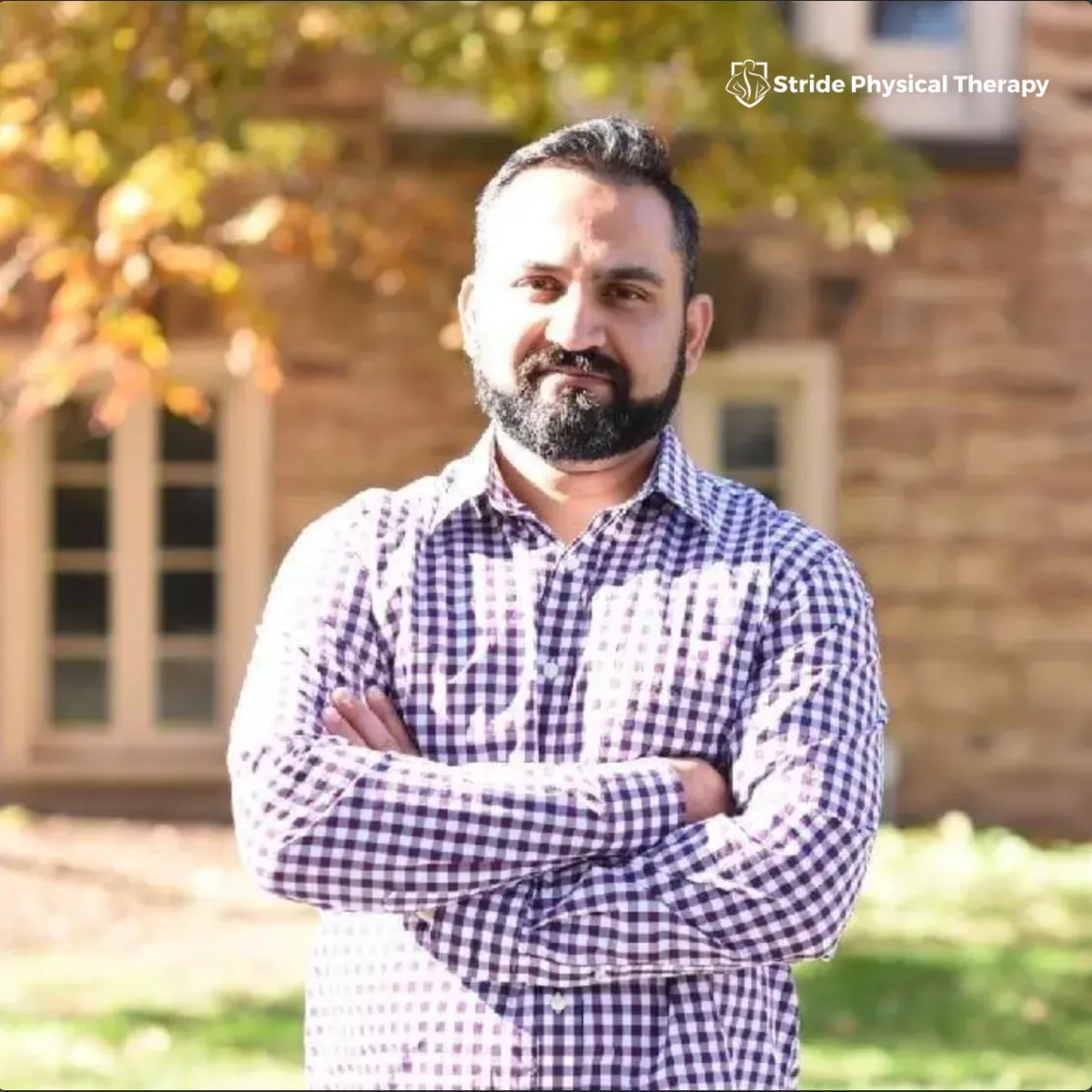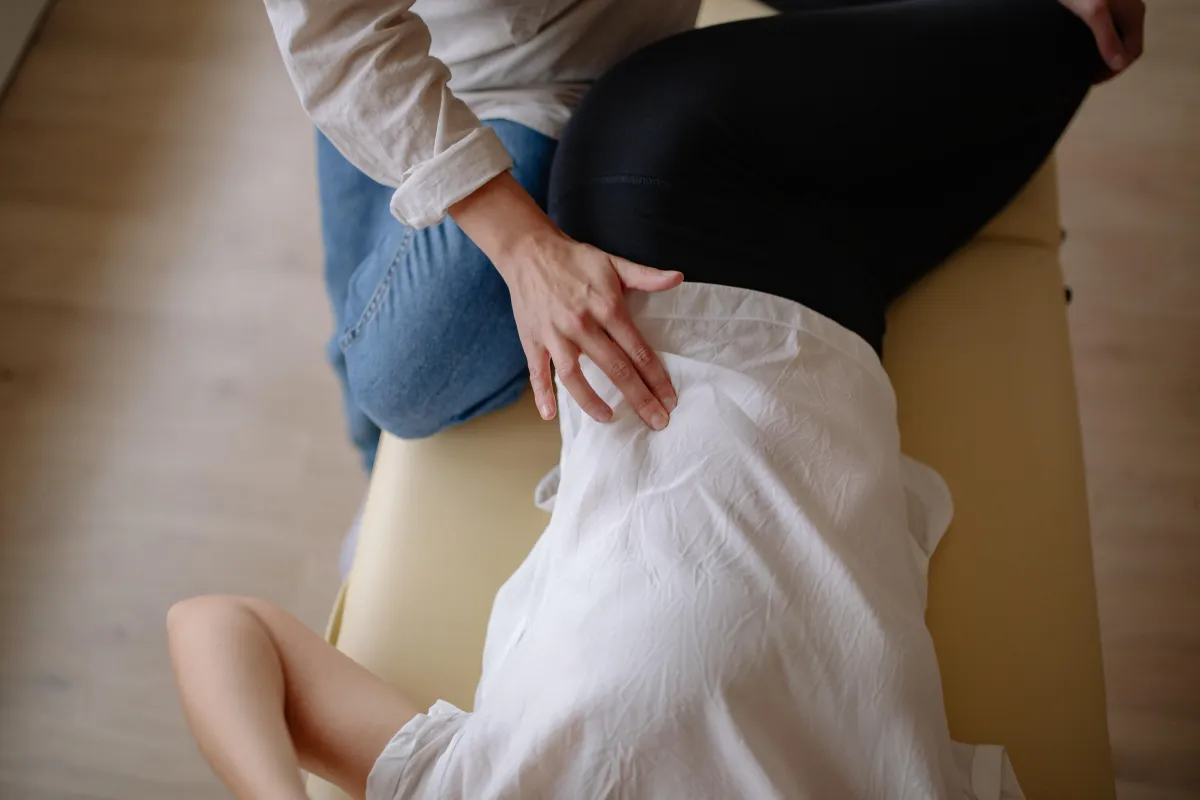Thoracic Outlet Syndrome (TOS) refers to conditions caused by the squeezing, injury, or irritation of nerves and blood vessels in the lower neck and upper chest. Named after the area located between your lower neck and upper chest, known as the thoracic outlet, TOS can affect anyone regardless of age or gender.
Types of Thoracic Outlet Syndrome
Neurological Thoracic Outlet Syndrome: This type of TOS is the most usual. It happens when the brachial plexus—a bundle of nerves running from the spine, through the neck, to the arm—gets squeezed. It often affects those who do repetitive arm motions above their head at work or play sports like swimming or baseball.
Venous Thoracic Outlet Syndrome: Thoracic Outlet Syndrome (TOS) occurs when the subclavian vein—a crucial vessel transporting blood from the arms to the heart—is compressed. Often due to congenital narrow pathway from the shoulder to the heart, TOS is worsened by repetitive arm and shoulder movements. These shrink the tight thoracic outlet space, increasing pressure on the vein and exacerbating TOS.

Quick Links
FAQs
Arterial Thoracic Outlet Syndrome: This condition, TOS, occurs when the subclavian artery—responsible for moving blood from the heart to the arm—gets blocked by a blood clot. It often affects people born with an additional rib in the neck or an irregularly shaped first rib, which can compress the artery and permanently narrow it.
Causes of Thoracic Outlet Syndrome
TOS-related problems can be confusing, but we know they happen when the thoracic outlet's narrow space squeezes blood vessels or nerves too much, leading to irritation and TOS. Also, certain conditions, characteristics, or behaviors could increase your chances of getting TOS. These are called risk factors.
Unchangeable Risk Factors: You cannot alter these factors. Having more increases your TOS risk.
~ Pregnancy
Risk Factors You Can Change: These are the factors you can manage or improve with treatment, medication, or changes in your way of life.
1. Intense weightlifting.
2. Bad posture.
3. Sports with repeated arm/shoulder use.
4. Heavy loads on shoulders.
5. Depression.
Other conditions that contribute to the development of TOS:
1. Birth defects in body structure.
2. Abnormalities in bone and soft tissue.
3. Injury-related trauma.
4. Upper chest or underarm tumors or swollen lymph nodes.
MEET YOUR RECOVERY TEAM

Kanwal Bhardwaj
PT, M.Sc.PT, CIMT, CMNT
Meet Kanwal Bhardwaj, PT, M.Sc.PT, CIMT, CMNT, the driving force behind Stride Physical Therapy in Freehold, NJ. With over 20 years of dedicated experience in the field, Kanwal brings a wealth of expertise and a passion for holistic healing to his practice. Kanwal's journey began with a Master of Science in Orthopedic Physical Therapy from Quinnipiac University in 2004. Over the years, he honed his skills and gained invaluable insights during 18 years of service in outpatient physical therapy offices. In 2014, fueled by a desire to deepen his understanding of patient care, he pursued a manual therapy certification (CIMT). This transformative experience allowed him to adopt a whole-body perspective, focusing on treating the root cause rather than just the symptoms...
At Stride Physical Therapy, we're dedicated to transforming lives. With a focus on the root cause of your condition, we're here to help you regain mobility and embrace an active lifestyle. What sets us apart? Our genuine passion for what we do. Let's stride towards a brighter tomorrow together.
Elevate Your Health with Our All-Inclusive Wellness Services!
Take one step closer to a pain-free life with Stride Physical Therapy! Discover medication and surgery-free solutions with our sessions.
Health Blog

Find Relief for Your Hip and Knee Pain with Physical Therapy
Finding it tough to walk without a limp? Worried that your days of being active are over? Are hip and knee pains making every move unbearable? If hip or knee discomfort is wreaking havoc on your daily life and you're seeking relief without turning to medications or surgeries, there's an alternative.
Physical therapy offers a non-invasive way to lessen the pain in your hips and knees, enhancing the performance of these essential joints. Get in touch with Stride Physical Therapy in Freehold, NJ, today to discover how we can assist you in getting back on your feet!
How Physical Therapy Eases Hip and Knee Pain
Once we pinpoint the cause of your hip or knee pain, our physical therapist can recommend strategies to help ease your pain and get you moving comfortably again. We might start with passive exercises where we help move your joint to increase its range of motion without pain. Exercises that ease the load on your joints are also beneficial. For example, swimming or water activity lessens the stress on your hips and knees as they don't have to carry your full weight.
We'll also suggest exercises to tackle your hip or knee pain and improve joint health. Strengthening exercises bolster the muscles and tissues stabilizing your joint, and corrective movements and neuromuscular training teach you how to keep your posture aligned and balanced.
Beyond exercises, our physical therapy includes treatments like heat, ice, and massage to help manage pain and accelerate healing.
Common Causes of Hip and Knee Pain
Hip and knee pain can be caused by a variety of problems. Some of these are related to musculoskeletal misalignment, poor posture, and/or excess weight; others occur as the result of natural aging or unhealthy sports/work habits. Your hip or knee pain may stem from:
Traumatic injuries, such as dislocation of the joint
Postural/alignment issues that throw your body off balance, straining the knees or hips
Runner’s knee, an instability of the kneecap
Osteoarthritis, a painful inflammatory condition involving deteriorated joint cartilage
Tendinitis, or stretched ligaments
Bursitis, an inflammation of the friction-reducing sacs surrounding the joints
Infections
Our physical therapist can often determine the cause of your hip or knee pain from its location. For example, pain along the inside of the hip is more likely to be caused by a problem with the bones or cartilage. Pain along the outer side is typically caused by a problem in the muscles, tendons, or ligaments.
Why Did My Hip and/or Knee Pain Develop?
Your hips and knees play vital roles – the hips support your upper body's weight and your knees support the weight of your body above them. They need to be flexible for activities like walking and running, but this can lead to ongoing hip or knee pain. Pain in these areas can arise slowly from regular wear and tear, or quickly and sharply if you get injured.
Relieve Your Hip and Knee Pain Today
Are you ready to reclaim your pain-free mobility through physical therapy? Contact Stride Physical Therapy in Freehold, NJ, for an appointment! Our dedicated team is here to help you find relief and improve your quality of life.


